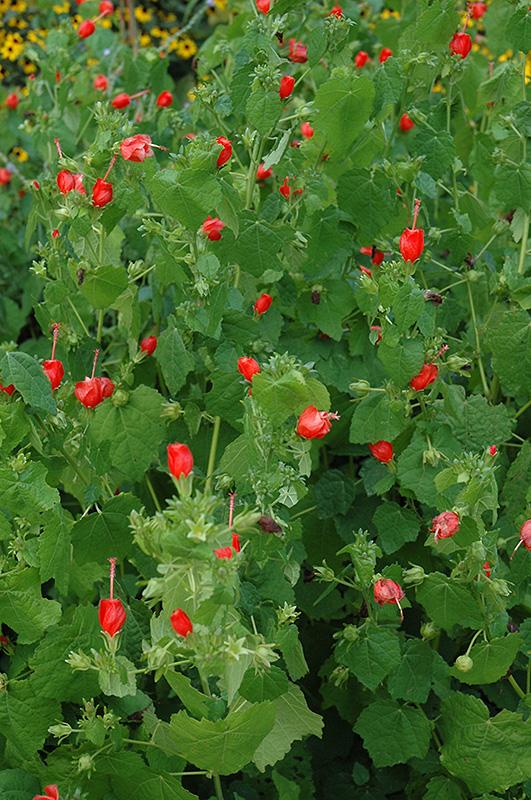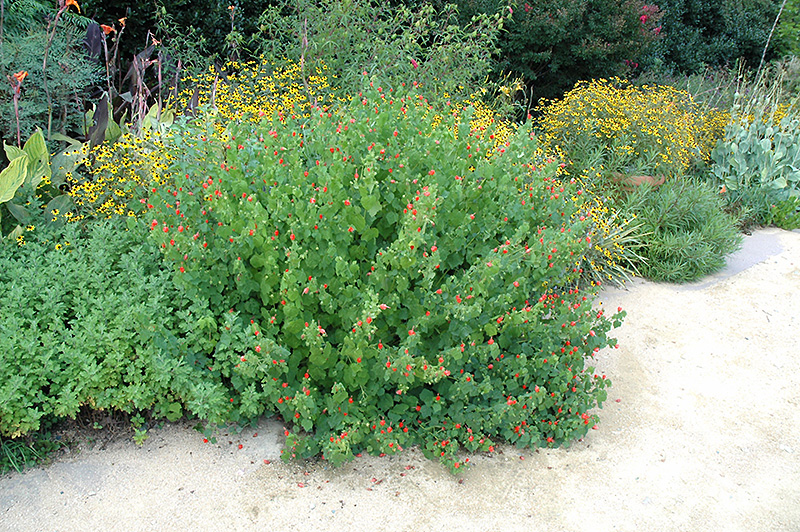Height: 3 feet
Spread: 4 feet
Sunlight:
![]()
Hardiness Zone: 6b
Other Names: Drummond Wax Mallow, Texas Mallow, Sleepy Hibiscus
Description:
An interesting sub-shrub variety producing clusters of red flowers in late summer through fall; evergreen in warm, frost free climates
Ornamental Features
Turk's Cap features showy clusters of scarlet tubular flowers at the ends of the branches from mid summer to early fall. The fruits are showy red drupes carried in abundance in late fall. It has green foliage with grayish green undersides. The round palmate leaves remain green throughout the winter.
Landscape Attributes
Turk's Cap is a dense multi-stemmed evergreen shrub with a mounded form. Its average texture blends into the landscape, but can be balanced by one or two finer or coarser trees or shrubs for an effective composition.
This is a relatively low maintenance shrub, and should be cut back in late fall in preparation for winter. It is a good choice for attracting butterflies and hummingbirds to your yard. It has no significant negative characteristics.
Turk's Cap is recommended for the following landscape applications;
- Mass Planting
- General Garden Use
- Container Planting
Planting & Growing
Turk's Cap will grow to be about 3 feet tall at maturity, with a spread of 4 feet. It has a low canopy. It grows at a fast rate, and under ideal conditions can be expected to live for approximately 30 years.
This shrub should only be grown in full sunlight. It prefers to grow in average to moist conditions, and shouldn't be allowed to dry out. It may require supplemental watering during periods of drought or extended heat. It is not particular as to soil type or pH. It is highly tolerant of urban pollution and will even thrive in inner city environments. This species is native to parts of North America. It can be propagated by division.
Turk's Cap makes a fine choice for the outdoor landscape, but it is also well-suited for use in outdoor pots and containers. Because of its height, it is often used as a 'thriller' in the 'spiller-thriller-filler' container combination; plant it near the center of the pot, surrounded by smaller plants and those that spill over the edges. It is even sizeable enough that it can be grown alone in a suitable container. Note that when grown in a container, it may not perform exactly as indicated on the tag - this is to be expected. Also note that when growing plants in outdoor containers and baskets, they may require more frequent waterings than they would in the yard or garden.


